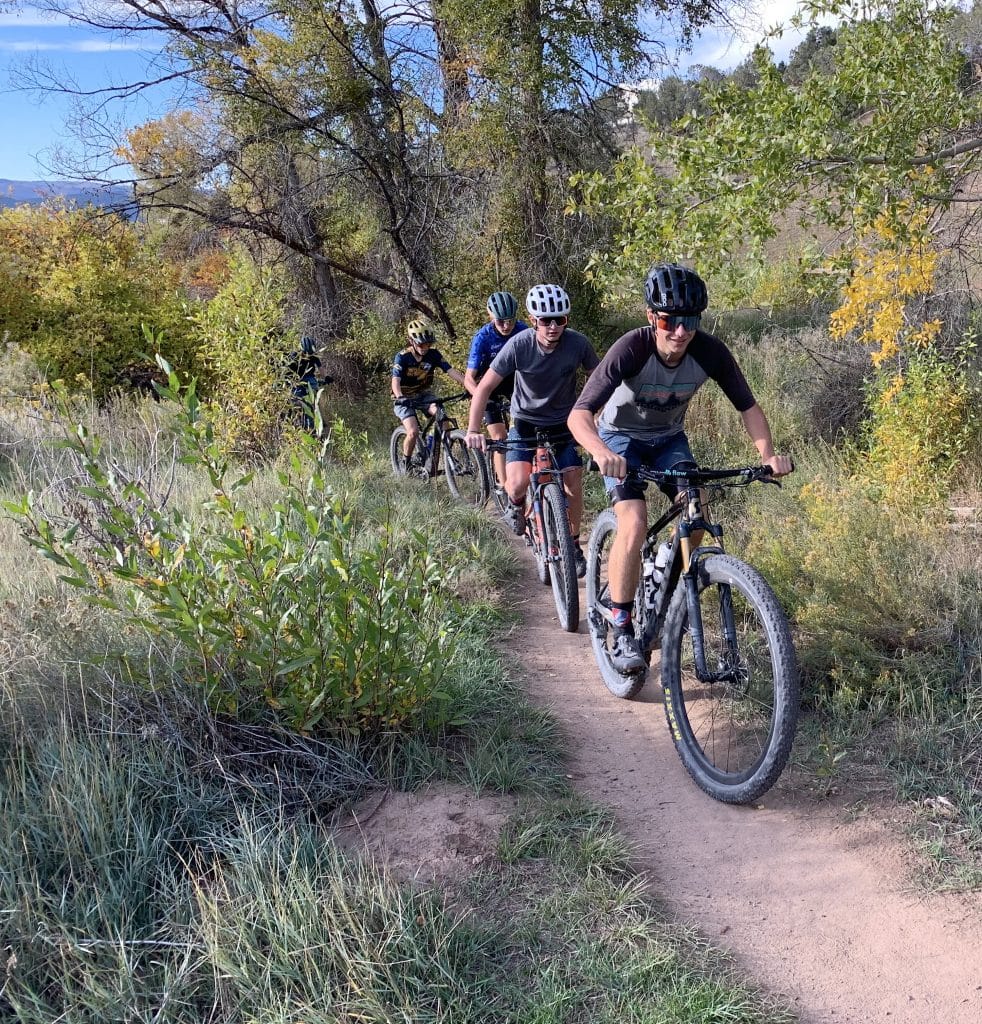U.S. Forest Service, Bureau of Land Management officials in Colorado describe ‘big holes’ in staffing
The Colorado state director at the Bureau of Land Management says his agency has about ⅓ of its positions vacant compared to normal

Post Independent archives
Federal land managers with the U.S. Forest Service and the Bureau of Land Management last week gave more details on how the Trump Administration has shrunk the federal workforce in Colorado.
Club 20, an organization of counties, businesses and individuals in Western Colorado, invited the two land managers to speak Friday, July 24, at their meeting in Steamboat Springs, which was open to the public.
Chad Stewart, the supervisor of the Grand Mesa, Uncompahgre and Gunnison National Forests, and Doug Vilsack, the Colorado state director at the Bureau of Land Management, responded to questions during the meeting, including about reductions to the federal workforce.
“There’s a lot of changes going on in the Forest Service,” said Stewart, who joined virtually due to the Turner Gulch wildfire burning on thousands of acres in southwest Colorado including on the Uncompahgre National Forest in Mesa County.
Stewart said that 41 employees at Grand Mesa, Uncompahgre and Gunnison National Forests accepted the Trump Administration’s deferred resignation option, which allowed eligible federal workers to voluntarily resign while continuing to receive benefits for a time. Since those employees left, he said the national forests he oversees have gained eight new employees through lateral transfers.
While the deferred resignation program largely excluded firefighters, Stewart said that some non-fire personnel with “red card” qualifications, which allow them to work support roles during wildfires, left the agency through the program. He noted that Forest Service Chief Tom Schultz in June called on “red card” employees who took the deferred resignation option to “come back” for the fire season.
Stewart said the federal government has hired more than 11,300 firefighters this year, a similar number to years past. That includes more than 750 firefighters hired in the Forest Service’s Rocky Mountain Region, he said.
“So we have our firefighting resources,” Stewart said. “It’s just a matter of how we deploy them and how we support them. Some of that conversation is about the people who left through deferred resignation. They’re being asked to come back and fill some of those support functions.”
Vilsack said about 10% of Bureau of Land Management employees — between 50 and 60 people — in Colorado took the deferred resignation option, leaving about 35% of agency positions in the state vacant, compared to “normal.” He said the voluntary resignations have left “some big holes” as employees focused on various topics including rangeland management, oil and gas and internal operations like budget issues have resigned.
“It’s very patchy, you lose one person in one in some of these field offices that don’t have a lot of folks and that could be your one range person in that field office,” Vilsack said, noting that he is working to address those “local concerns.”
Vilsack said that the federal government has had a hiring freeze in effect “with very little flexibility,” and exemptions only for firefighting and public safety staff. Given all the priorities of the Bureau of Land Management, he said at some point he believes “there will be a realization that we need a few more folks.”
Asked about how the changes at the Bureau of Land Management have affected the culture at the agency over the past six months, Vilsack responded that “staff is concerned.”
“I mean, these are their livelihoods. Many of them have been here for many years. I think this type of reorganization conversation is always challenging,” Vilsack said. “I will say, since the deferred resignation effort, we’ve seen very few people leave. At this point, I think most of our people are very committed to sticking around for a long time.”
Congressional concerns
Also during the Club 20 meeting, staff for Colorado elected officials who represent the Western Slope raised concerns about billions of dollars in additional cuts to federal land management proposed in President Donald Trump’s budget for 2026.
Hilary Henry, the director of U.S. Sen. Michael Bennet’s Western Slope Office, said the Democratic senator has pushed back against cuts to federal agencies, including land management agencies.
Bennet is opposed to the further cuts to federal agencies proposed in Trump’s budget, Henry said. The senator has also raised “pretty significant concerns” about the Trump Administration’s proposal to consolidate transfer firefighting from the Forest Service, where it is integrated with land management, to the Department of Interior, she said.
“When we saw the outbreaks of the fires in June, we were very glad we saw high levels of teams on the ground,” Henry said. “It’s something that Senator Bennet is very engaged on and will continue to track closely and will continue to push the agency to prioritize fire and on-the-ground fire resources even as they make pretty drastic changes to the structure and size of the agency.”
Abbey Callahan, a senior legislative assistant for Rep. Joe Neguse (D-Colorado), echoed those concerns, adding that Neguse is “closely monitoring any impacts to our public land management agencies.”
Responding to a question from an audience member, Riley Scott, the deputy district director for Rep. Jeff Hurd (R-Colorado), said that the congress’s federal budget process will be a bipartisan process because it requires a 60-vote majority in the Senate.
“With this appropriations process being a bipartisan process just by the numbers, I do think that those cuts that were mentioned in the President’s budget will likely not be the final version of the budget,” Scott said. “I think that definitely would also be Congressman Hurd’s wish as well.”
Aspen area included in ‘release zone’ for wolverine reintroduction
The Aspen area has been included in one of three general release zones for the reintroduction of wolverines into the state, according to preliminary information from Colorado Parks and Wildlife’s developing plan.










